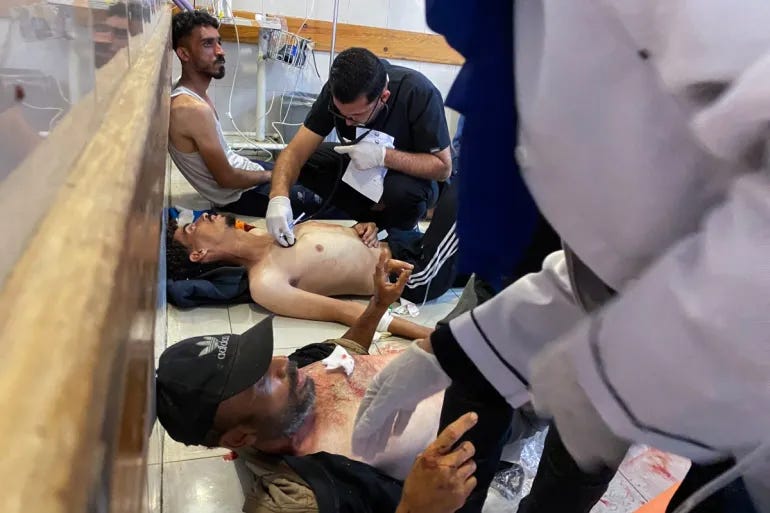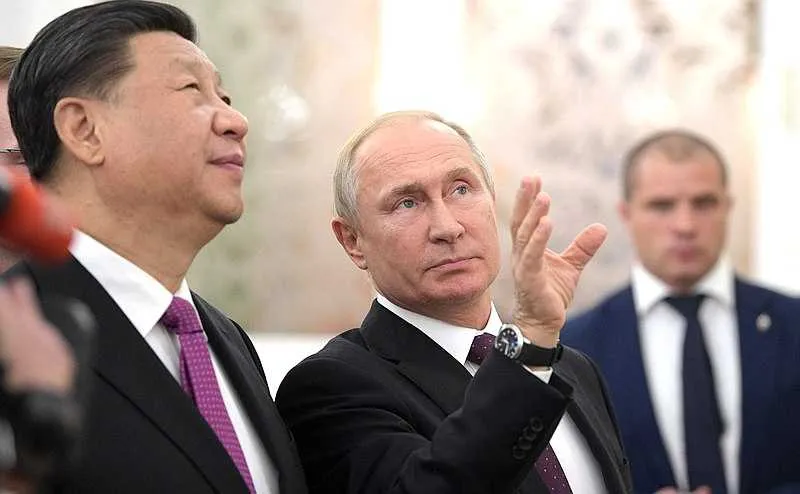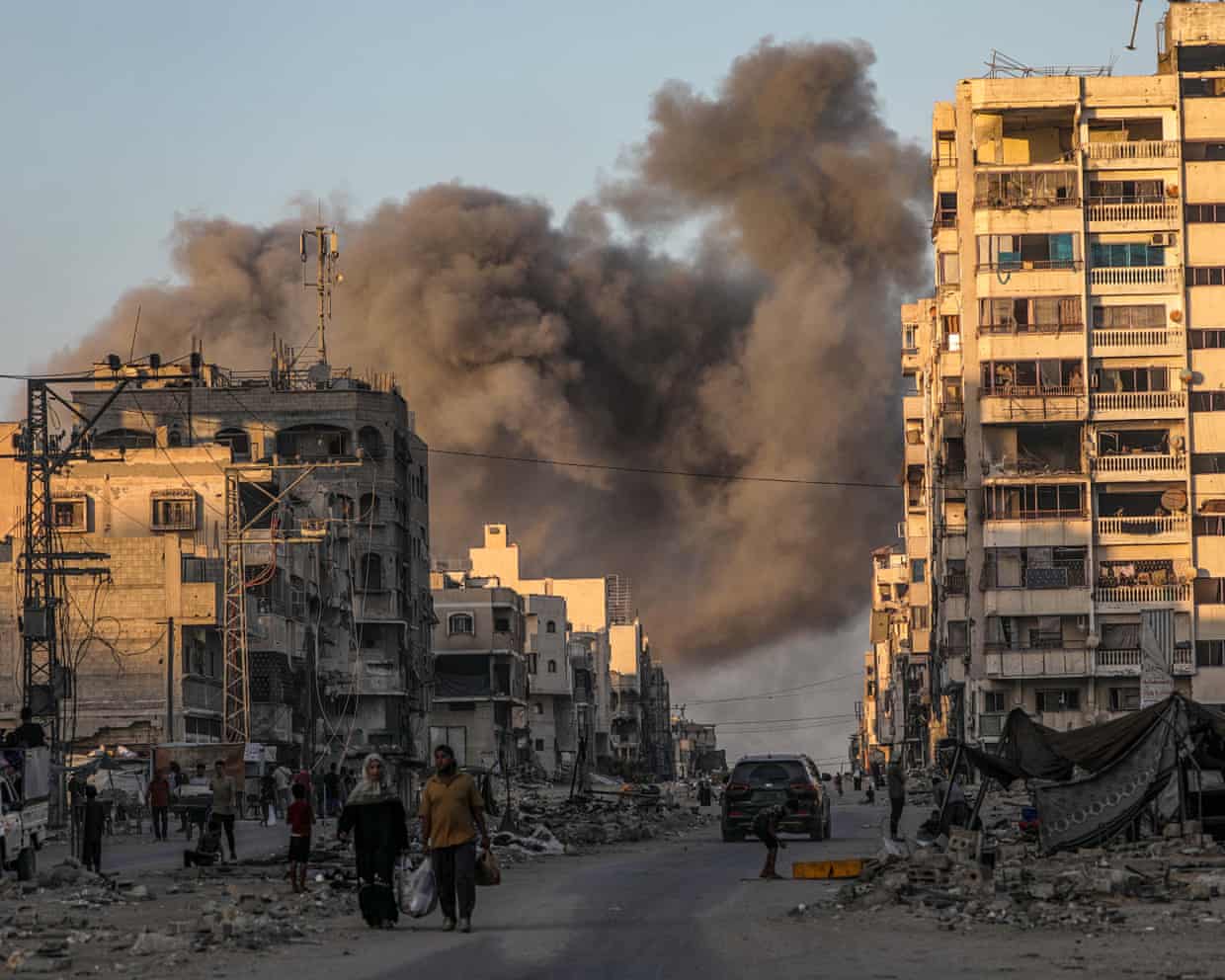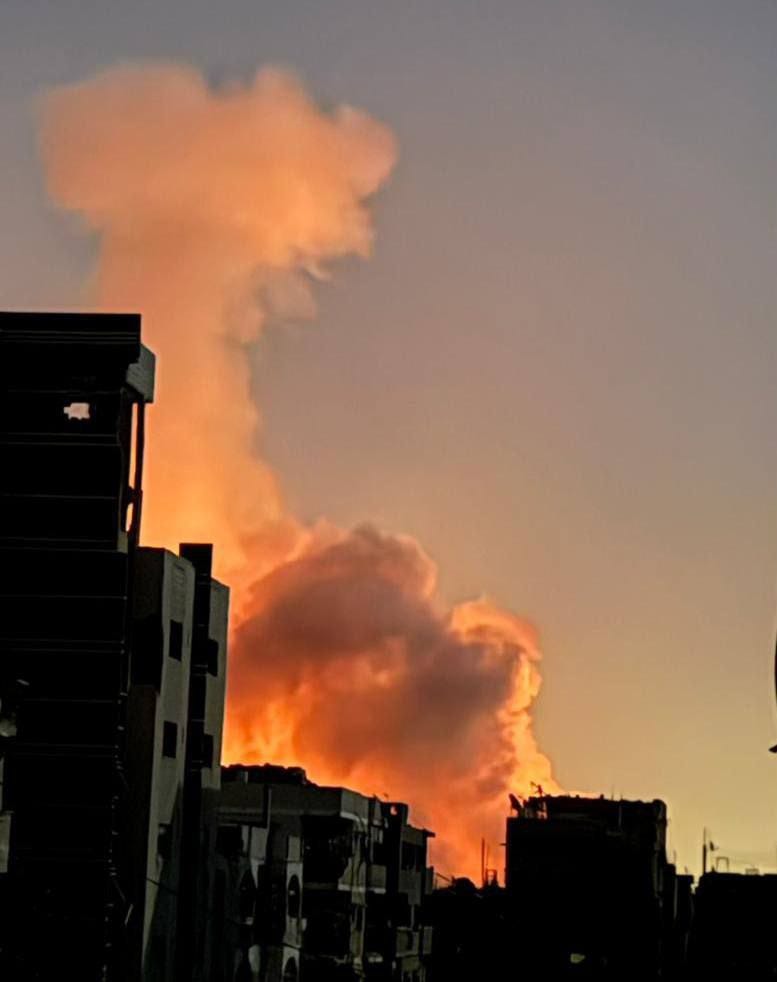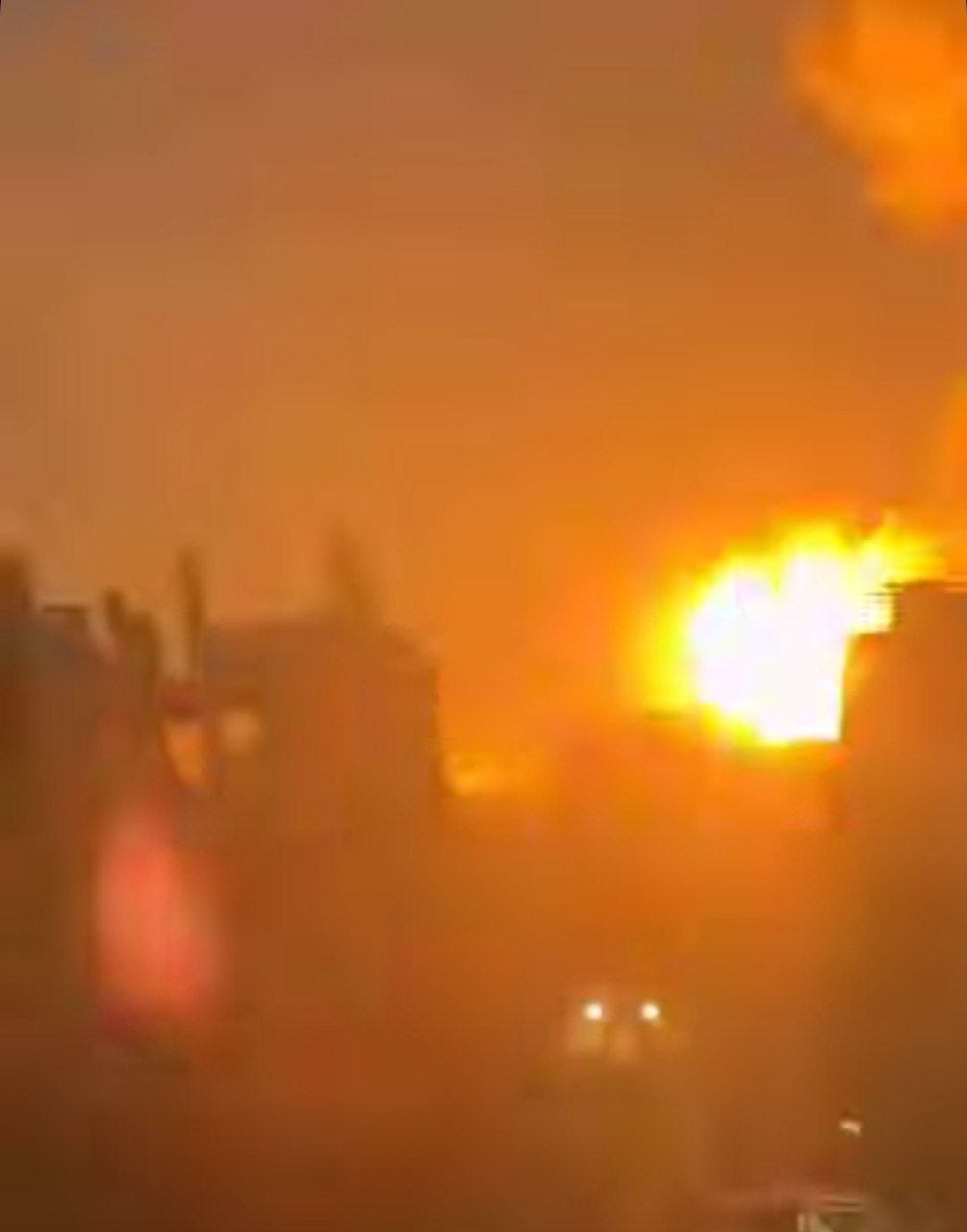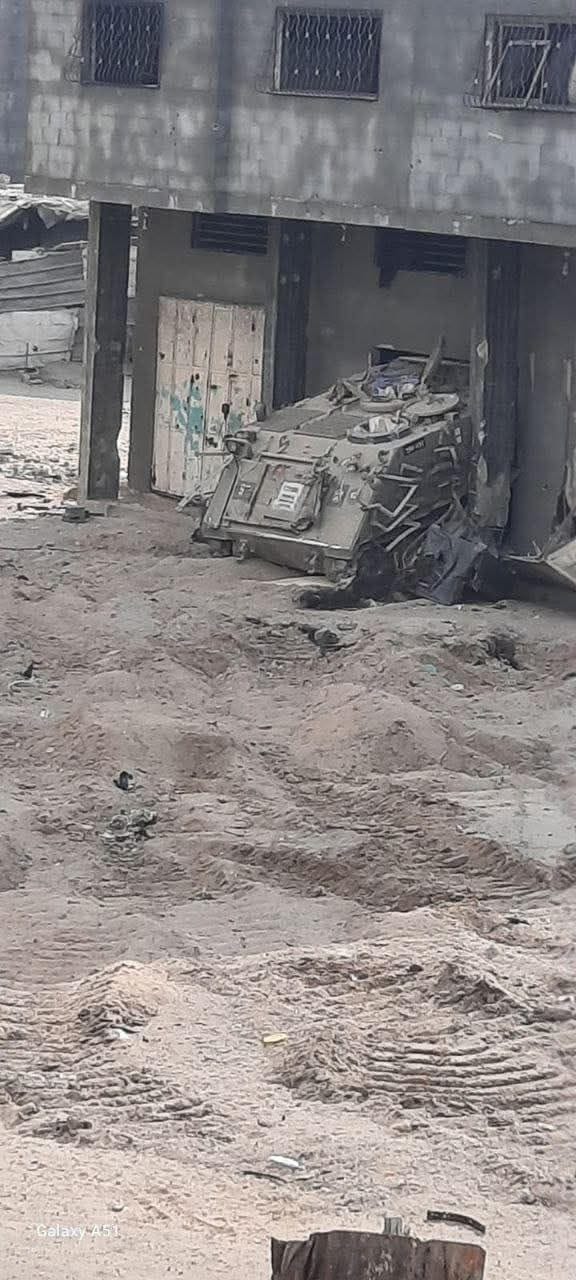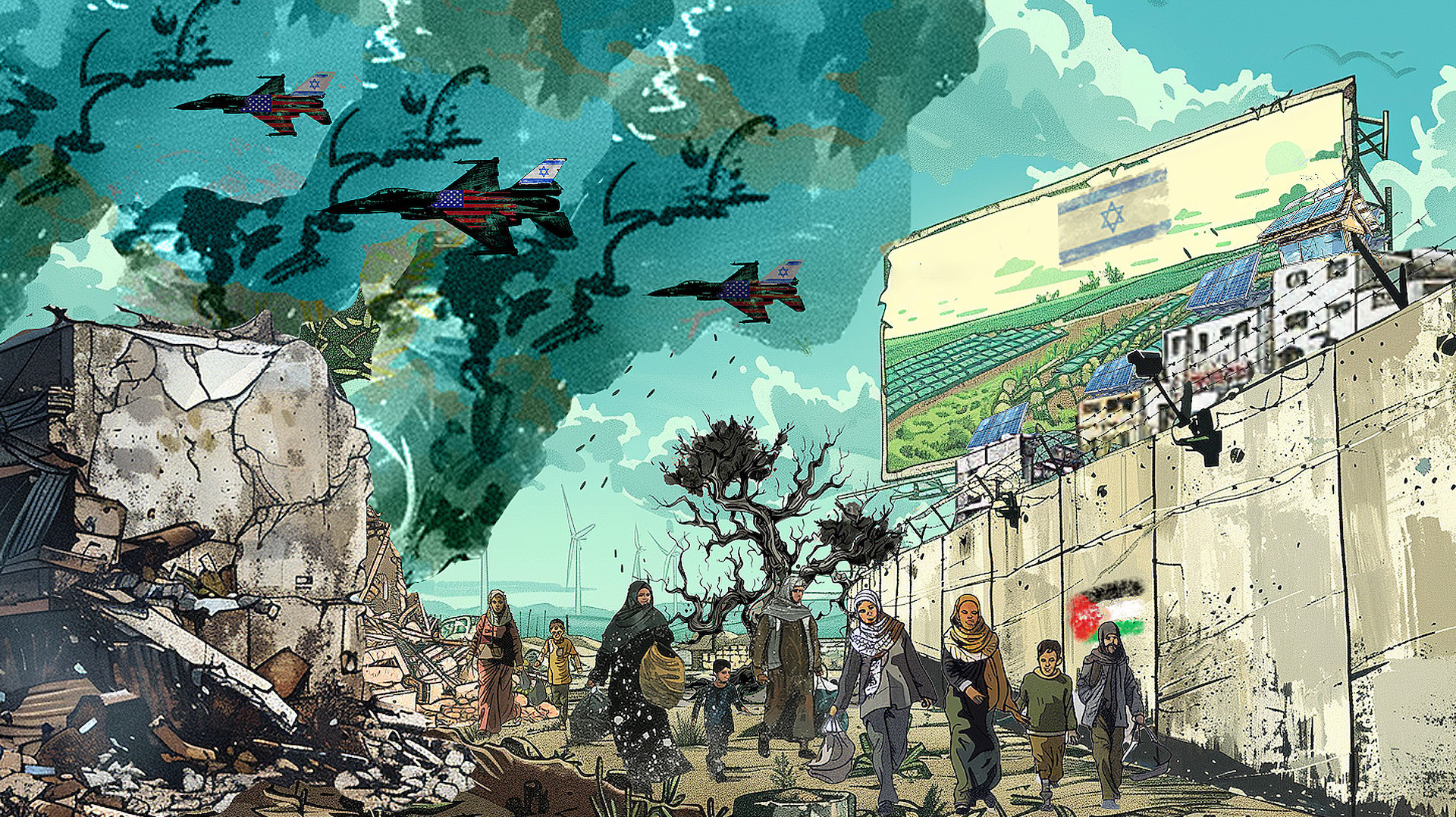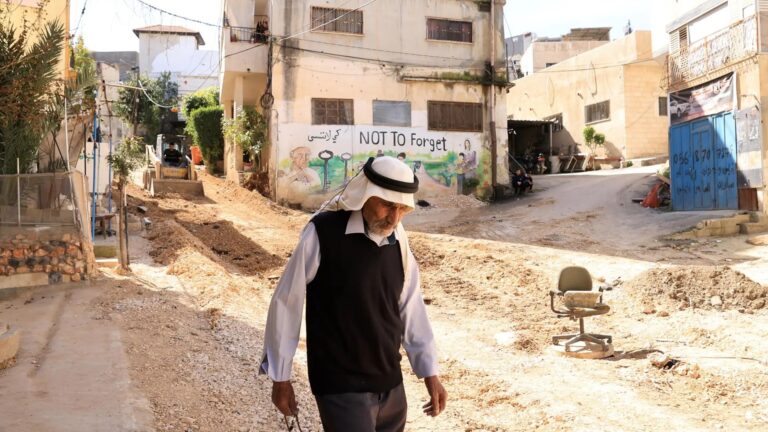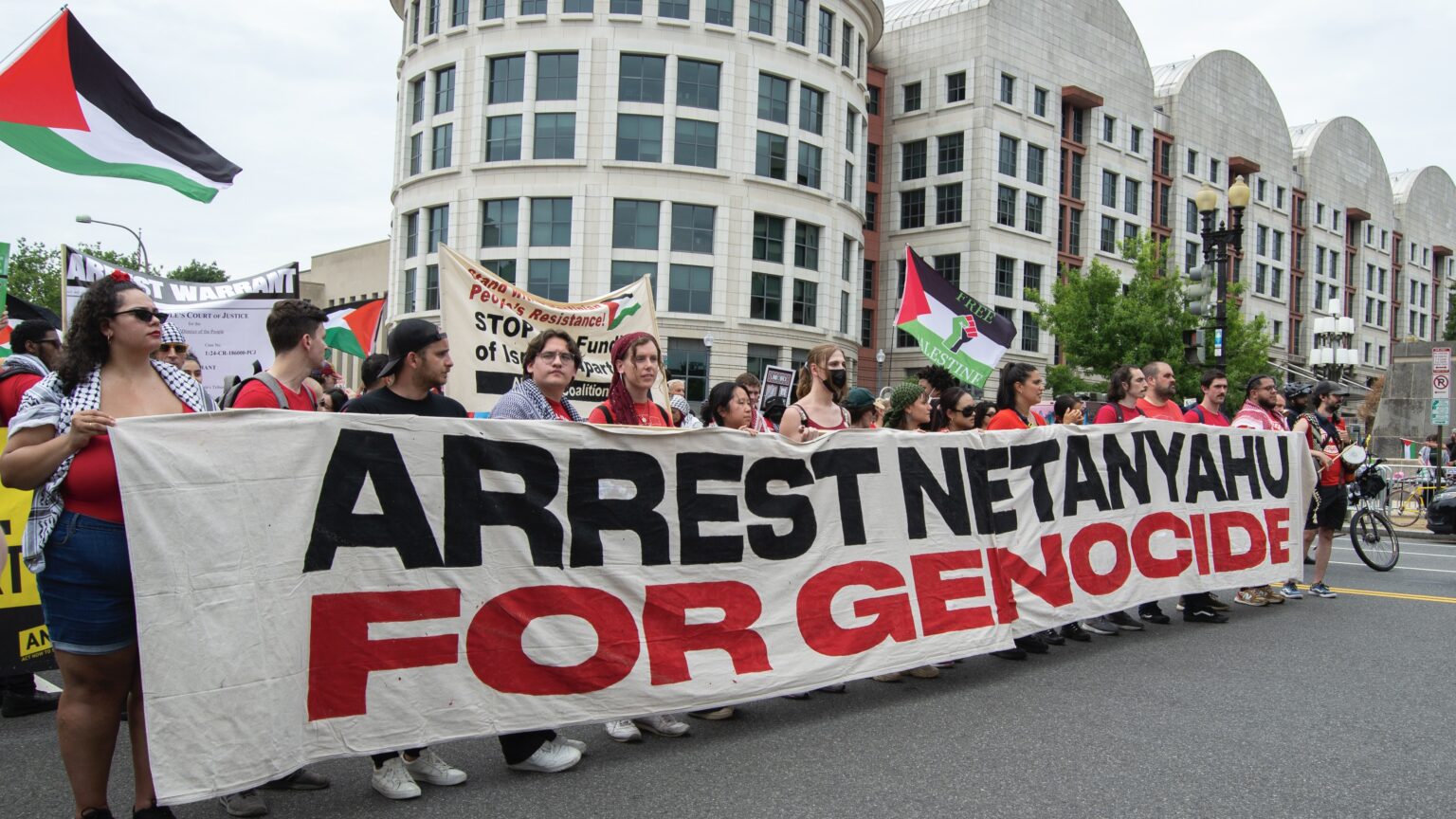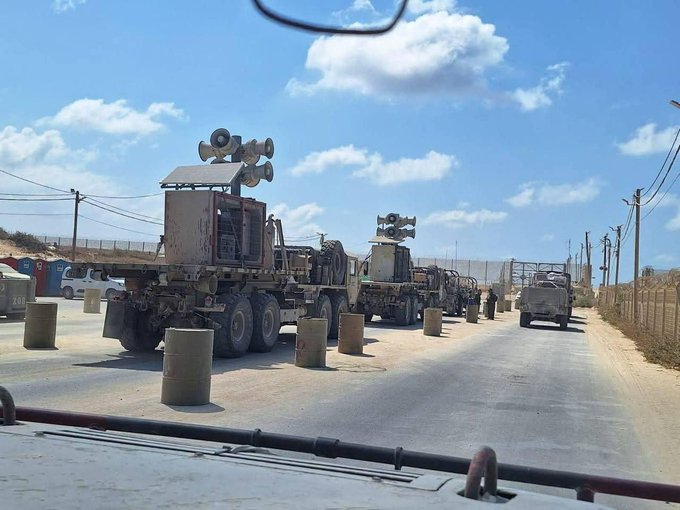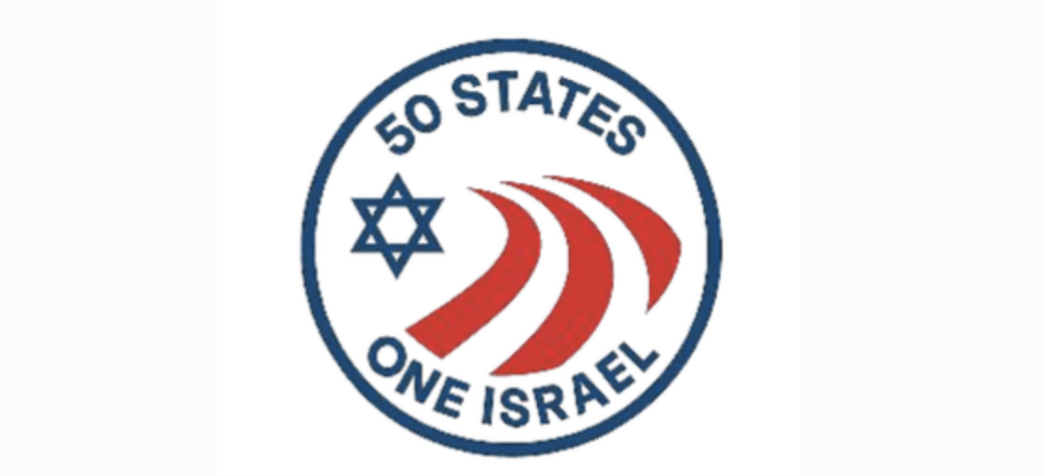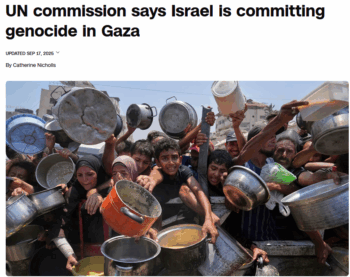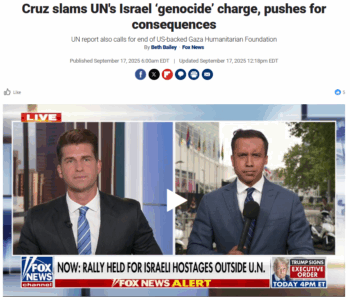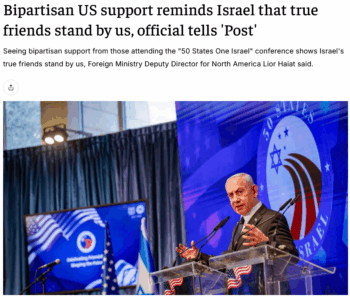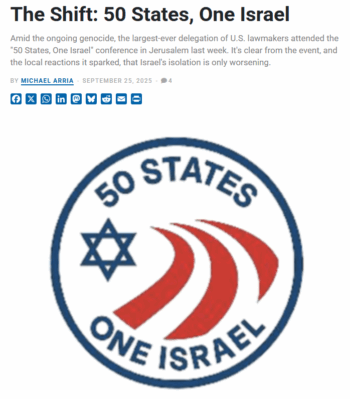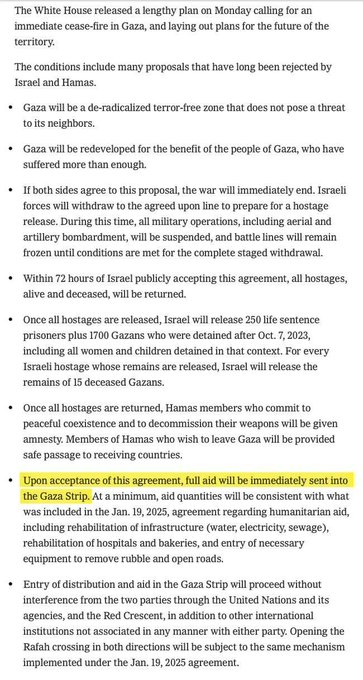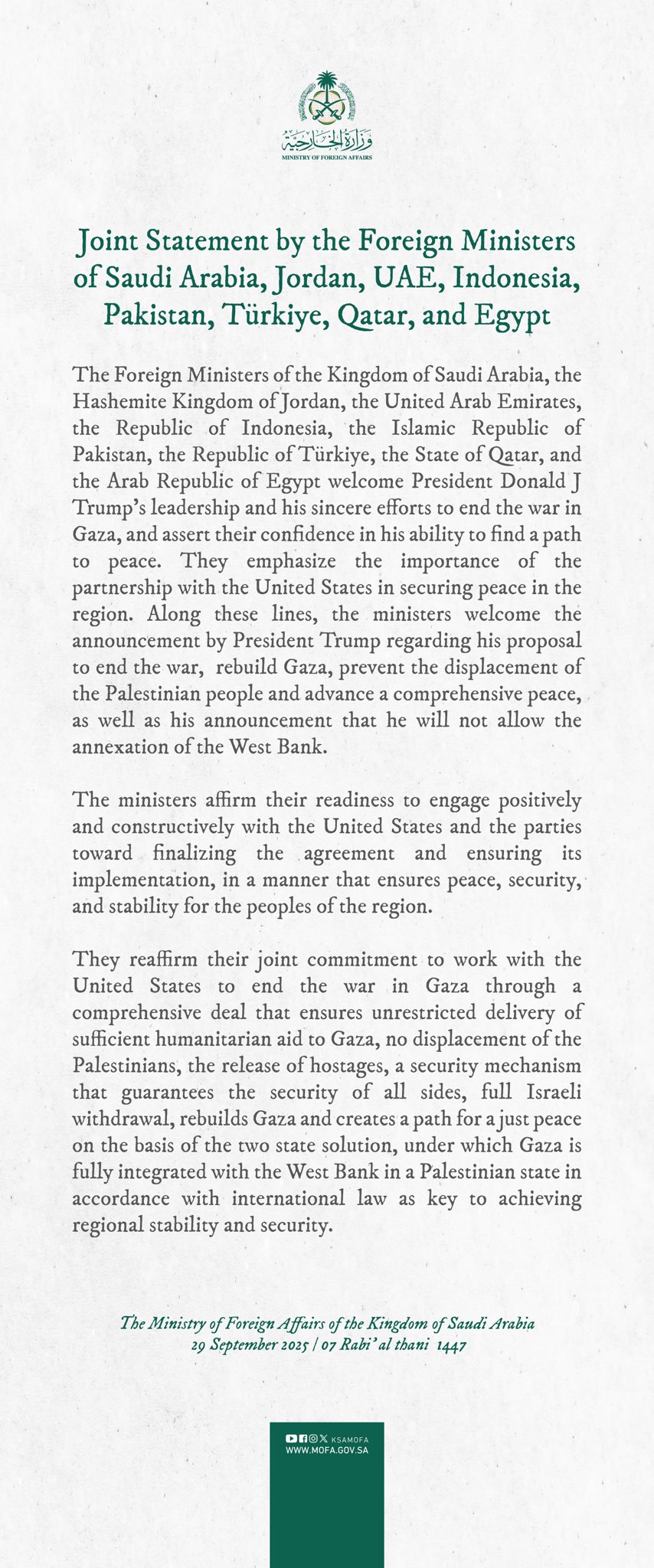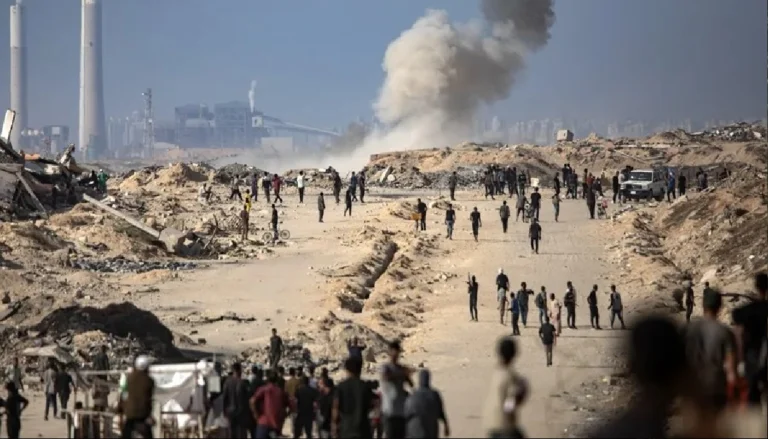Extreme overcrowding, harsh living conditions, and relentless Israeli airstrikes are forcing many Palestinians to return to areas the Israeli army plans to occupy as part of operation 'Gideon's Chariots 2'
News Desk
SEP 16, 2025

(Photo Credit: Abdel Kareem Hana/AP)
About one million Palestinians in Gaza City and northern Gaza are refusing or are unable to be forcibly displaced to overcrowded “safe zones” in southern Gaza, according to a statement issued by the Gaza Government Media Office on 16 September.
“More than one million Palestinians remain rooted in Gaza City and the northern Gaza Strip, holding onto their land and homes, and categorically rejecting displacement to the south, despite the savage bombardment and genocidal war carried out by the Israeli occupation,” Palestinian officials said.
The statement highlights that the population of Gaza City and northern Gaza “exceeds 1.3 million people,” most of whom have already been displaced from their neighborhoods to central and coastal areas.
According to Israeli media reports on Tuesday morning, Tel Aviv estimates that approximately 600,000 civilians remain in Gaza City.
Officials in Gaza have also documented what they describe as “reverse displacement,” with over 15,000 Palestinians returning “to their original areas in Gaza City as of Tuesday noon after initially moving belongings to the south for safekeeping, only to come back because of the complete absence of basic living conditions there.”
Gaza officials also emphasize that the Al-Mawasi area in Khan Yunis and Rafah in the south of the strip currently hosts around 800,000 Palestinians living in harsh conditions.
Israeli officials refer to these areas as "safe humanitarian zones,” despite being targeted by more than 100 airstrikes over the past few months that have claimed the lives of at least 2,000 Palestinians.
“The area designated by the occupation on its maps as 'shelter zones' covers only 12 percent of Gaza’s total territory, where it is attempting to cram more than 1.7 million people," the Gaza Government Media Office highlights in its statement, adding that the so-called safe zones ”lack all essentials of life: no hospitals, infrastructure, or vital services such as water, food, shelter, electricity, or education — making survival nearly impossible."
The Israeli military launched its long-anticipated ground invasion of Gaza City overnight on Tuesday under the cover of relentless bombardment that could be heard as far as Tel Aviv.
According to Hebrew media, Gideon’s Chariots 2 was initially expected to begin after a mass evacuation of Gaza City, home to more than a million people. On Monday, Israeli Army Radio reported that the pace of evacuation was “slow and may affect the start of the ground operation.”
Nevertheless, the Israeli army launched the operation hours after the visit of US State Secretary Marco Rubio, who expressed Washington's unwavering commitment to the genocide of Palestinians in Gaza.
https://thecradle.co/articles/one-milli ... -officials
Israel to flood Gaza City with 'unprecedented' number of booby-trapped vehicles: Report
The remote-controlled 'suicide APCs' have caused massive destruction in Gaza as Tel Aviv has deployed at least 100 of them in less than a month
News Desk
SEP 17, 2025

(Photo Credit: MENAHEM KAHANA/AFP via Getty Images)
The Israeli military is set to deploy an “unprecedented” number of remote-controlled armored personnel carriers (APCs) loaded with explosives into Gaza City as part of operation “Gideon's Chariots 2,” Hebrew news outlet Walla reported on 17 September.
This is part of the first stage of a three-stage plan drafted by Major General Yaniv Asor to “conquer” the largest city in the strip, where hundreds of thousands of Palestinians remain trapped or refuse to be displaced.
“The ‘fire phase' focuses on the massive destruction of terrorist infrastructure — mainly at night — using various methods, including above and below ground robots,” Walla reports, citing military sources that said “Gaza has never been hit like this before. This is only the second night.”
Referred to as “booby-trapped robots" in Gaza, the decommissioned APCs are rigged with explosives and remotely driven deep into urban areas before being detonated, causing massive explosions and widespread destruction.
“The Israeli army sends the robots near our homes, which stay parked there to terrorize us. The army doesn’t detonate them right away, waiting for fear to push us to flee. When people don’t leave, the army detonates the robots, regardless of whether there are civilians in the area,” Abdulwahhab Ismail, a resident of the Saftawi area in northwestern Gaza, told Mondoweiss last month.
The Israeli military calls this practice “suicide APCs.” According to Walla, Tel Aviv has stationed a large number of these vehicles outside the Gaza separation line.
“Acting on orders from IDF Southern Command chief Maj.-Gen. Yaniv Asor, the deployment of these vehicles has surged, with officers in the field reporting that their usage has tripled. Forces on the ground have testified to the movement of hundreds of these explosive-laden APCs toward the Gaza border,” the Jerusalem Post reported earlier this month.
In August, reports in Hebrew media revealed that Israeli arms companies were planning to expand production of tanks and APCs with a budget exceeding $1.3 billion.
At least 100 booby-trapped robots were used in densely populated areas inside Gaza between 13 August and 3 September alone, according to Gaza's Government Media Office.
“Before now, the army used to blow up one or two buildings with the robots. Now they destroy dozens of buildings at once. Robots and warplanes are working together to destroy every place in Gaza City,” Ismail described.
Thursday's report from Walla added that the “second stage” of the southern command's plan calls for the occupation of Gaza City by the invading troops, while the third stage “is currently classified as high security and combines military capabilities that we have not yet seen in the Israeli war repertoire.”
https://thecradle.co/articles/israel-to ... les-report
******
The Obvious Is Now Official - Israel Commits Genocide
In relation to the attacks along the evacuation routes and within designated safe areas, the Commission found that the Israeli security forces had clear knowledge of the presence of Palestinian civilians, including children. Nevertheless, Israeli security forces shot at and killed civilians, including children who were holding makeshift white flags. Some children, including toddlers, were shot in the head by snipers.
The above excerpt (IV. B. ii. f. 215.) is from this report.
From the Office of the United Nations High Commissioner for Human Rights:
Legal analysis of the conduct of Israel in Gaza pursuant to the Convention on the Prevention and Punishment of the Crime of Genocide (pdf)
by the Independent International Commission of Inquiry on the Occupied Palestinian Territory, including East Jerusalem, and Israel
I. 3.
In its previous reports to the Human Rights Council and the General Assembly, the Commission found that the Israeli security forces have committed crimes against humanity and war crimes in Gaza, including extermination, torture, rape, sexual violence and other inhumane acts, inhuman treatment, forcible transfer, persecution based on gender and starvation as a method of warfare. Furthermore, the Commission found that the Israeli authorities have (i) destroyed in part the reproductive capacity of the Palestinians in Gaza as a group, including by imposing measures intended to prevent births; and (ii) deliberately inflicted conditions of life calculated to bring about the physical destruction of Palestinians as a group, both of which are underlying acts of genocide in the Rome Statute and the Convention on the Prevention and Punishment of the Crime of Genocide (“Genocide Convention”)
I. 4.
Having concluded that the Israeli security forces committed crimes against humanity, war crimes and the actus reus of two underlying acts of genocide in Gaza, the Commission now addresses the issue of genocide. ...
There follows an analysis of the events. The legal definition of genocide requires intent. After having reviewed official statements by the government of Israel the Commission concludes:
C. 220.
On the basis of fully conclusive evidence, the Commission finds that statements made by Israeli authorities are direct evidence of genocidal intent. Additionally, on the basis of circumstantial evidence, the Commission finds that genocidal intent was the only reasonable inference that could be drawn based on the pattern of conduct of the Israeli authorities. Thus, the Commission concludes that the Israeli authorities and Israeli security forces have the genocidal intent to destroy, in whole or in part, the Palestinians in the Gaza Strip.
But what can we do?
VI. B. 246.
The duty to prevent and punish genocide applies not only to the responsible State but to all States Parties to the Genocide Convention and indeed to all States under customary international law.
We can, and should of course, personally boycott the Zionist entity to the fullest extend. But it is also on us to press our governments to follow up on the report. There are obligations that must be fulfilled.
Posted by b on September 17, 2025 at 8:12 UTC | Permalink
https://www.moonofalabama.org/2025/09/t ... .html#more
Saudi Arabia's Defense Pact With Pakistan Is A Strategic Loss For The U.S. of A.
Back in 2012 U.S. foreign policy analysts were concerned about a possible nuclear alliance between Saudi Arabia and Pakistan. Scholars from the Johns Hopkins University School of Advanced International Studies and the Stimson Center wrote an essay about it:
The Pak-Saudi Nuke, and How to Stop It - The American Interest, March 2012
The opening paragraph:
One morning, perhaps in the not too distant future, the President of the United States may wake up to an announcement that, given new dangers in the Middle East, the Saudi government has requested the stationing of Pakistani troops on Saudi soil. The announcement might go on to explain that these troops will also bring with them the full complement of conventional and strategic weapons necessary to ensure their security and that of Saudi Arabia. Word would quickly follow from Islamabad that Pakistan has accepted a generous aid package and low-priced oil from Saudi Arabia. Both parties would stress that the agreement simply reaffirms their decades-long special relationship.
As Pakistan is a nuclear weapons state one had to assume that any such a pact would supply Saudi Arabia with nuclear weapons. It was something that the U.S. and its sidekick Israel were very concerned about.
It was assumed at that time that the reason for such a move by Saudi Arabia would be its concern over Iran and its nuclear program:
Over the past decade, Saudi Arabia’s threat perception has sharpened as the dangers from Iran have grown along with doubts about the reliability of U.S. protection.
The time to wake up to a new Saudi-Pakistani alliance has finally come today:
Saudi Arabia signs ‘strategic mutual defence’ pact with Pakistan (archived) - Financial Times
But the strategic circumstance under which the alliance happens are very different from those that had been envisioned in 2012 essay:
Saudi Arabia has signed a “strategic mutual defence” pact with Pakistan, signalling to the US and Israel that the kingdom is willing to diversify its security alliances as it looks to bolster its deterrence.
The agreement with the nuclear-armed south Asian state comes a week after Gulf states — traditionally reliant on the US as their security guarantor — were deeply rattled by Israel’s missile strikes targeting Hamas’s political leaders in Qatar.
“We hope it will reinforce our deterrence — aggression against one is aggression against the other,” a senior Saudi official told the Financial Times.
“This is a comprehensive defence agreement that will utilise all defensive and military means deemed necessary depending on the specific threat.”
This is a NATO Article 5 like pact. 'All means deemed necessary', as empathized, undoubtedly includes Pakistan's nuclear weapons.
The U.S. was, the FT say, not at all involved in it:
Riyadh is believed to have informed Washington about the Pakistan defence agreement after it was signed.
Saudi Arabia already has a strategic missile force which is armed with Chinese DF-21 missiles which have a range of up to 1,700 kilometer. They can hit Tehran, but also Tel Aviv. The missiles are conventionally armed but can be fitted with nuclear warheads.
Pakistan's development of nuclear weapons had largely be financed by Saudi Arabia. The two countries have a long history of military cooperation:
Pakistan and Saudi Arabia have a defense relationship stretching back decades, in part due to Islamabad’s willingness to defend the Islamic holy sites of Mecca and Medina in the kingdom. Pakistani troops first traveled to Saudi Arabia in the late 1960s over concerns about Egypt’s war in Yemen at the time. Those ties increased after Iran’s 1979 Islamic Revolution and the kingdom’s fears of a confrontation with Tehran.
Pakistan developed its nuclear weapons program to counter India's atomic bombs. However, there long have been signals of the kingdom’s interest in the program. Retired Pakistani Brig. Gen. Feroz Hassan Khan, in his book on his country’s nuclear weapons program called “Eating Grass: The Making of the Pakistani Bomb,” said Saudi Arabia provided “generous financial support” for its effort.
Today Saudi Arabia no longer fears a confrontation with Iran. In 2023, with the help of Chinese mediation, the two countries did bury their hatchets. The move was an early sign that the U.S. was losing ground in the Middle East.
The reasons why the is being closed these days is obvious:
The agreement was signed by Saudi Crown Prince Mohammed bin Salman and Pakistan’s Prime Minister Shehbaz Sharif in Riyadh. Sharif’s office’s reiterated that the agreement “states that any aggression against either country shall be considered an aggression against both”.
The Israeli attack on Doha, one of the US’s major non-Nato allies, exacerbated Gulf leaders’ long-running concerns about Washington’s unpredictability and its commitment to their defence, as well as fears about Israel acting unrestrainedly with its military across the region.
The Saudis had worked on, and hoped for, a deeper alliance with the U.S. But the genocide in Gaza, and the unlimited U.S. support for it, have made such an alliance impossible:
Riyadh had been hoping to seal a defence pact with the US, as well as co-operation with Washington’s nuclear plans, as part of a grand deal that would have led to it normalising diplomatic relations with Israel.
However, those plans were upended after Hamas’s October 7, 2023 attack on Israel, triggering the war in Gaza and conflict across the region.
Riyadh has become increasingly outraged by Israel’s 23-month war in Gaza and the conduct of Prime Minister Benjamin Netanyahu’s far-right government.
Prince Mohammed accuses Israel of committing genocide, and has made it clear that normalisation is off the table unless Netanyahu ends the conflict and moves to establish a Palestinian state.
China, which is allied with Pakistan, will be happy about the deal. So will be Iran. It was likely already informed about it:
Before the defense pact was signed, Iran dispatched Ali Larijani, a senior political figure who now serves as the secretary of the country’s Supreme National Security Council, to visit Saudi Arabia. That may have seen the kingdom acknowledge the pact to Tehran, with which it has had a Chinese-mediated détente with Iran since 2023.
India will be concerned about the deal. A lot of the oil it purchases is coming from Saudi Arabia. With a Saudi-Pakistani alliance in place any conflict with Pakistan will likely cause it additional difficulties with the purchase of energy.
The U.S., and Donald Trump, are the big losers in this. The unrestricted support for Israel is coming at an ever increasing price. The Gulf countries are - slowly, slowly - moving away from it.
Posted by b on September 18, 2025 at 10:11 UTC | Permalink
https://www.moonofalabama.org/2025/09/s ... .html#more
******
Gaza’s ‘Marathon of Terror’: A City Forced Toward Erasure
September 16, 2025

People run as smoke rises over a building in Gaza City, September 14, 2025. Photo: Omar Al Qattaa/AFP.
By Youssef Fares – Sep 15, 2025
In Gaza, the sky holds nothing but the dust of shattered buildings bombarded every few minutes by US-supplied Israeli warplanes. On Saturday alone, 16 buildings were reduced to rubble, including three towers and facilities of the Islamic University, where tens of thousands of forcibly displaced people had taken refuge. In al-Karama neighborhood, the most crowded area of northwest Gaza, airstrikes tore through shelters and ignited a massive fire that consumed hundreds of tents.
Israeli tactics have escalated from threatening a single residential building to ordering the evacuation of entire blocks. Intelligence officers now call residents of 100 homes at once and give them five minutes to evacuate before striking multiple buildings at once. This transforms Gaza’s streets into a “marathon of terror”. Children and adults flee the bombardment while others hurl mattresses and blankets from upper floors in a race against collapse.
Hundreds of families now sleep homeless on hospital steps and roadside pavements. Today Gaza is the portrait of a doomsday scene. Survivors are emptying the place and moving toward the center and south of the Strip. According to Israeli estimates, around 300,000 residents have fled in the past two weeks, more than half of them in the last three days alone. Around 900,000 people remain for lack of travel means. They are left with no option but to endure whatever comes their way.
Today Gaza is the portrait of a doomsday scene
This evokes memories of the 1948 Nakba. An entire city, with its cultural and historical identity being systematically erased. The immediate result is thousands of families left homeless and hopeless, with emigration increasingly seen as the only lifeline for survival.
Meanwhile Israeli media outlets report that Benjamin Netanyahu has put in motion a plan to deport Gazans by sea and air while exploring the options of countries willing to receive them – including Ethiopia, Somalia, and South Sudan.
Despite Arab and international condemnation, nothing for now suggests that the Israeli government is halting its long-term campaign. Ending the war without rapid mechanisms to restore civilian life would create unbearable conditions. This is precisely the outcome the Israeli entity seeks.
Yet despite ferocious bombardment, even the Israeli army admits the difficulty of emptying Gaza City, which proves Palestinians’ deep attachment to their land. But the displaced, hungry, and defenseless cannot resist the occupation’s machinery of destruction alone. Their survival requires genuine Arab and international political and humanitarian support to withstand this campaign of forced expulsion.
(al-akhbar)
https://orinocotribune.com/gazas-marath ... d-erasure/
******
Israel’s Destruction of Gaza City Intensifies
September 17, 2025
Israel called the campaign “Operation Gideon Chariots II,” which Hamas said it will counter with a series of operations dubbed “Moses’ Staff.”

Israeli Forces level a high-rise building surrounded by refugee tents in Gaza. (Israeli Defense Minister Katz on X, Screenshot)
By Peoples Dispatch
“The bolt is now being removed from the gates of Hell in Gaza,” Israeli Defense Minister Israel Katz said Friday, Sept. 5, wrote on X, signaling the start of “Operation Gideon Chariots II” in Gaza City.
“When the door is opened, it will not be closed, and IDF activity will intensify,” Katz added, threatening Hamas “to accept Israel’s conditions for ending the war,” otherwise “they will be destroyed.”
A couple of hours later, Katz posted a video of a high-rise building being flattened by Israeli warplanes in Gaza City, commenting: “We started.”
The posts were published almost simultaneously as the Israeli Occupation Forces (IOF) announced it will target multi-story buildings in Gaza City for allegedly being used by Hamas as military infrastructures.
Dozens of towers located in densely populated areas, some surrounded by makeshift tents of displaced people, have been destroyed since the IOF made the announcement.
On Monday, Sept. 8, Israeli Prime Minister Benjamin Netanyahu bluntly boasted about the demolition of 50 towers in Gaza City within a couple of days.
“In the past two days, 50 of these towers have fallen. The air force brought them down,” Netanyahu said in a video statement.

Chief of the General Staff, LTG Eyal Zamir, in a field visit in Gaza City, overseeing Operation Gideon’s Chariots. (IDF / X Via People’s Dispatch)
“Now all of this is just an introduction, just a prelude, to the main intense operation – a ground maneuver of our forces, who are now organizing and gathering in Gaza City,” he threatened.
Reiterating his intention to forcibly displace the people of Gaza, Netanyahu said: “This is just the prelude to the main powerful operation, so I tell Gaza residents: you have been warned, get out of there.”
Hamas Responds
In a statement issued Tuesday, Sept. 9, Hamas slammed Netanyahu’s remarks as “one of the most heinous images of sadism and criminality perpetrated by a war criminal, who has continued to commit brutal crimes against civilians for about two years.”
Hamas added that “the threat of terrorist Netanyahu to the residents of Gaza City and warning them to flee, is an explicit practice of the full-fledged forced displacement crime, under the pressure of airstrikes, massacres, starvation and threats.”
The Palestinian movement further condemned the silence and inability of the United Nations institutions, primarily the U.N. Security Council, in confronting these brutal crimes, and accused the U.S. administration of complicity.
[Drop Site News reported Wednesday that Israel bombed the only children’s hospital in Gaza City, forcing the evacuation of many of the patients. Israel says 350,000 of the roughly one million residents of the city have fled south and the IDF is opening a new corridor for 48 hours for the rest to leave in a blatant act of ethnic cleansing. Israel’s Gaza operation has brought worldwide condemnation, even from the E.U. But the U.S. remains silent in its complicity.]
“Netanyahu’s remarks are ‘one of the most heinous images of sadism and criminality perpetrated by a war criminal, who has continued to commit brutal crimes against civilians for about two years.’”
Moses’ Staff vs. Gideon Chariots II
Four months after “Operation Gideon Chariots” was launched without achieving any of Netanyahu’s “total victory” delusions, the second version of the expanded ground offensive was launched under the name “Operation Gideon Chariots II.”
Israel has used a biblical name for its operations in an attempt to sanctify the continuation of its 23-month genocidal aggression in Gaza, at least in the minds of religiously-oriented people within Israeli society, amid a growing opposition that has been calling for a ceasefire deal.
Gideon was a military leader, celebrated in the Torah for his victory over his enemies through unconventional strategy and tactics.
For its part, Hamas’s military wing, the Al-Qassam Brigades, responded to the denomination of the new Israeli operation, by announcing that it will be launching a series of operations dubbed “Moses’ Staff.”
The name implies a connotation of a religious narrative believed by Jews and Muslims alike, about the miraculous ability of the oppressed (Moses) to defeat the oppressor (Pharao), despite limited capabilities.
Although the Al-Qassam has mainly relied on street fighting and ambush tactics, Israel’s huge military arsenal has not enabled the IOF to defeat the brigades. It has not prevented the Israeli military from suffering major losses either.
According to the latest figures published by the Israeli occupation authorities, at least 904 Israeli soldiers have been killed since Oct. 7, 2023, out of whom 460 were eliminated in ground battles across Gaza.
In order to pressure Hamas to surrender, the Netanyahu administration has not used lawful military strategies, but criminal genocidal tactics, targeting areas densely populated by civilians, and using hunger as a weapon of war. It also recruited local militias of mercenaries to loot aid, spread chaos, and ignite infighting among Palestinians in the war-torn strip.
The Palestinian Health Ministry in Gaza said last Friday the official death toll of Palestinians killed by Israel across the besieged enclave since the beginning of the genocide has risen to 64,756.
Assassinating Hamas’s top military commanders and political leaders in Gaza and exile, has been another heinous strategy adopted by the Israeli government to undermine the Palestinian resistance group.
The aggression which rocked the Qatari capital, Doha, on Tuesday, Sept. 9, was the latest operation carried out by the IOF to assassinate senior Hamas leaders, who survived the assault.
Even though Israel has implemented every lethal and illegitimate method to eradicate the Al-Qassam, the resistance has demonstrated solidity with an extraordinary ability to recover, and continuously recruit new fighters.
https://consortiumnews.com/2025/09/17/i ... tensifies/
******
Palestinians Deserve More Than Food Aid – They Deserve Food Sovereignty
Posted by Internationalist 360° on September 16, 2025
Reason2Resist with Dimitri Lascaris
Despite overwhelming evidence of human-made famine in Gaza, pro-Israel advocates continue to sow doubt about Israel’s mass starvation of the Palestinian people.
To debunk their lies, Dimitri Lascaris spoke with two food experts: Dr. Charles Levkoe, Professor and Canada Research Chair in Equitable and Sustainable Food Systems at Lakehead University in Thunder Bay, Ontario, and Dr. Sarah Rotz, Associate Professor at the Faculty of Environment and Urban Change at York University, in Toronto.
Along with hundreds of other food experts, Dr. Levkoe and Rotz recently co-signed an open letter to Canada’s Prime Minister and Foreign Minister denouncing Canada’s failure to stop Israel’s genocide. In that letter, food experts from across Canada specifically condemned Canada’s highly-publicized airdrops of aid into Gaza.
According to Drs. Rotz and Levkoe, Israel has deliberately forced Palestinians to become dependent on external aid. Israel then obstructs or blocks that aid. What Palestinians need and deserve, they argue, is the ability to produce their own food, which they are eminently capable of doing. In other words, Palestinians deserve food sovereignty.
https://libya360.wordpress.com/2025/09/ ... vereignty/




